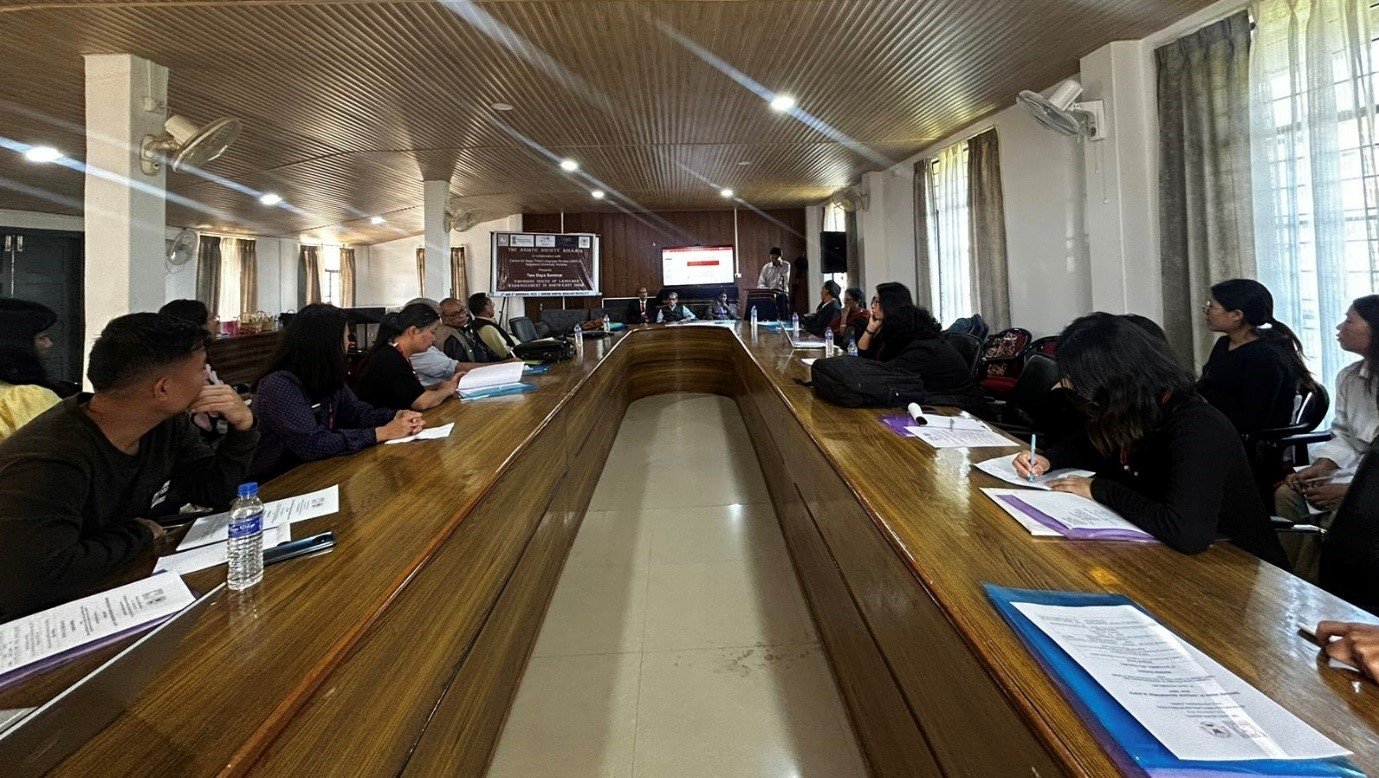Dr Samudra Gupta Kashyap, Chancellor, Nagaland University underscored the urgent need and importance of preserving the language which is the unique identity and reminded the gathering of the perils associated with language endangerment and extinction which is presently at its peak. “Each and every language embodies the unique cultural wisdom of the people, the loss of any language is just a loss for all humanity” he said adding that an extinct language can never be revived.
The NU Chancellor was speaking on the peril of language endangerment at the inaugural function of the two-day seminar on “Emerging Issues on Language Endangerment in North-East India” organized by The Asiatic Society, Kolkata in Collaboration with Centre for Naga Tribal Language Studies (CNTLS), Nagaland University, Kohima at the University’s Kohima campus.
Dr Kashyap further said language is endangered when its speaker cease to use it, adding, “Death of the language also resubmits death of the mother of a particular community.” He viewed that the larger languages in our country are currently on the verge of extinction as protection is endangered and said “saving and ensuring its survival is equally important issue”
Pointing to the UNESCO report which recorded only 4% speakers of the languages of the world of 97% conveying that 96% of the world’s languages are spoken by only about 3% of the population, he said, “this is the situation in the northeast in particular”. Mentioning the estimation of experts who estimated the possibility of 90% of the languages to be replaced by dominant languages by the 21st century said, it is alarming and “looks inevitable unless something very powerful happens.”
Download Nagaland Tribune app on Google Play

Highlighting the external and internal causes of language endangerment Dr Kashyap said, ministry, economic, religious, cultural and educational subjugation are some of the external forces while the community’s negative attitude towards its own language is another driving internal force and opined that the latter is happening all over the country today
“Many indigenous people associating their disadvantaged social position with their culture have come to believe that their languages are not good to begin with, not speaking they abandon their languages and cultures in hopes of overcoming discriminations to secure and ideal and enhance social mobility” he said.
The Nagaland University Chancellor noted that the policy of the government in the country is to promote all Indian languages including endangered languages and said “the government of India has initiated a scheme known as the scheme of protection and preservation of India endangered languages of India” for conservation of threatened languages. He further calling the people to protect and preserve the language said “there cannot be any excuse of not protecting them”
“Unless development touches the various linguistic communities the region will continue to suffer for lack of peace and security” Dr Kashyap added.

Pro Vice Chancellor, Nagaland University Prof. Glenn T. Thong opined that the languages of the North East are underrepresented though the region has a huge socio-cultural and linguistic diversity. Stressing on the need to preserve the marginalized languages, Thong said, “India is made up mostly of tribal communities however, being very poorly represented the region is yet to develop to its full potential.”
Also at the program, Prof. Shyam Sundar Bhattacharya, Philological Secretary, The Asiatic Society, read out a welcome note of the General Secretary, The Asiatic Society, Kolkata. In his message, he mentioned that The Asiatic Society of India (ASI) is the Oldest Institute of learning established in 1784, along with various contribution by the ASI and pointed that the seminar is the second seminar conducted in Nagaland
Dr Satarupa Dattamajumdar, the convenor of the seminar, in her keynote address opined that the North Eastern Languages have not been studied due to its minority status. She suggested that policies need to be implemented, the language situation needs to be revisited and that regional welfare program at the regional level has to be conducted. She also stressed on the importance of such collaboration in the future.
The inaugural session was followed by academic sessions. The program was chaired by Professor Jano Sekhose, Dean School of Humanities & Education and Head of Department (i/c), CNTLS and vote of thanks was proposed by Dr Laishram Bijenkumar Singh, Assistant Professor, CNTLS, NU Kohima.
The Seminar aims to evaluate the language environment of the North-East and to suggest and recommend measures to ensure that language loss is mitigated. The seminar will have papers from various experts from all over the North-East spread out over four academic sessions.

